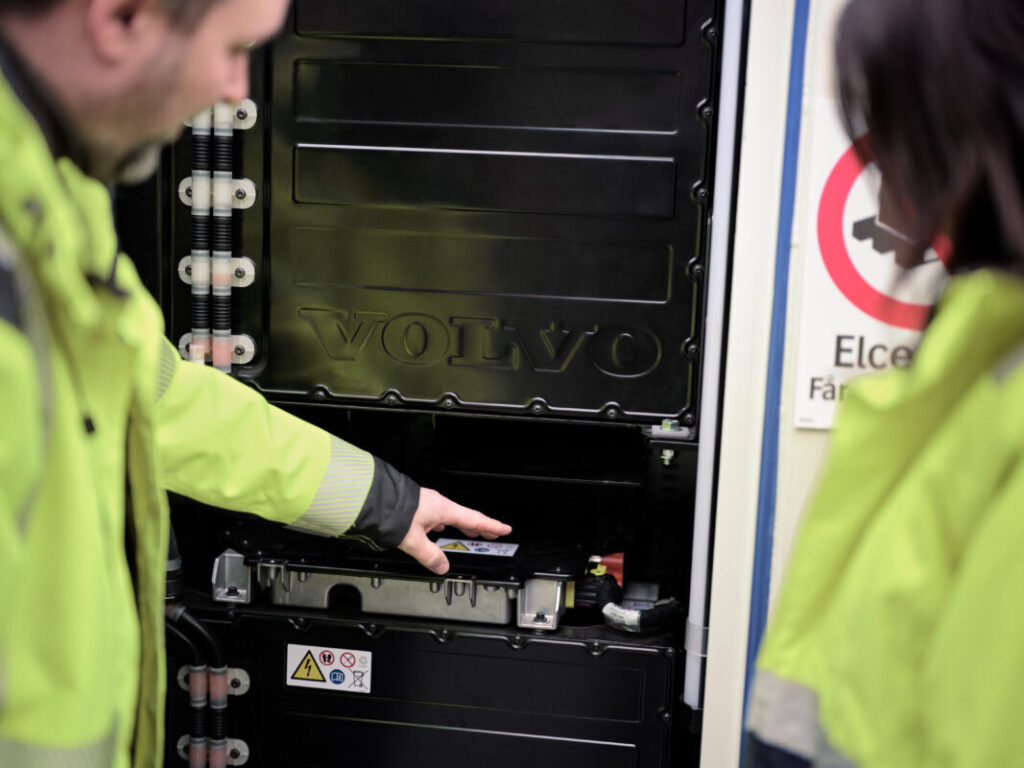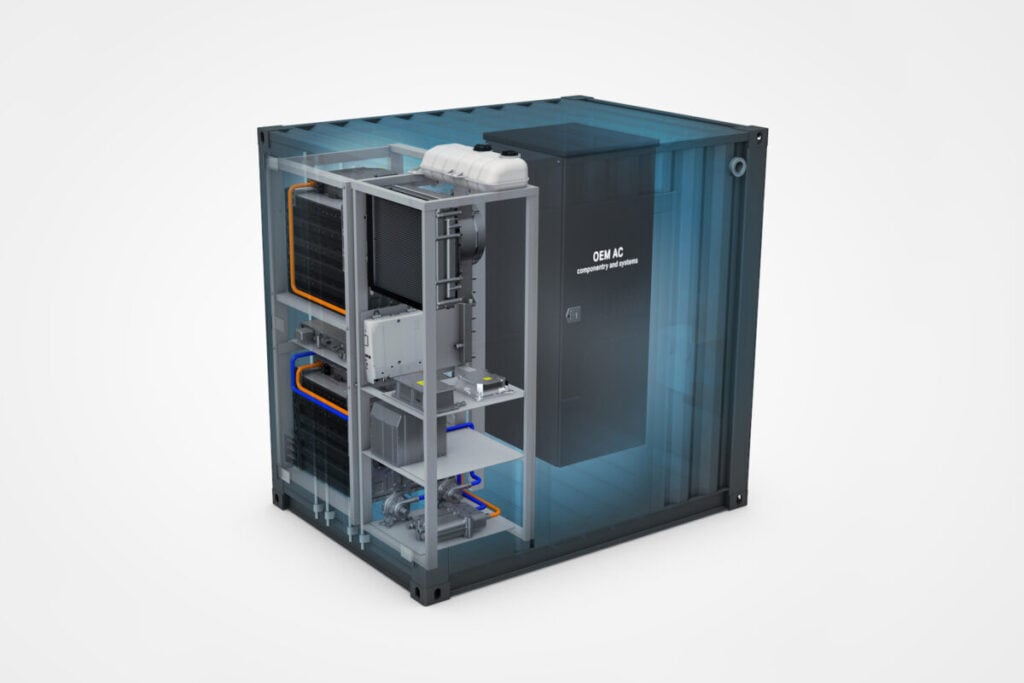
Industrial power solutions manufacturer Volvo Penta discusses its battery systems for BESS with a focus on the heavy industry and construction sectors.
Volvo Penta provides battery energy storage system (BESS) subsystems to system integrator customers, who in turn deploy BESS solutions for a variety of behind-the-meter applications across different commercial and industrial installations including major sectors such as construction. Volvo Penta launched the initiative to provide BESS subsystems in March 2023.
Accelerating electrification depends not only on advancing electric vehicle battery technology, but critically on developing robust charging infrastructure. Mobile charging solutions can bring flexibility and reliability to remote or temporary construction sites, for example.
Power-hungry construction sector moves to decarbonise
“Heavy industries are decarbonising with different factors driving it. It’s part regulatory push and part operational efficiency,” says Shreyas Dwarakanath, head of energy sales for Volvo Penta. “In construction, for example, a typical diesel engine has an idle time of around 40%, and that has a fixed operational cost. BESS solutions can aid in reducing this operational cost by activating only when it is required.”
Try Premium for just $1
- Full premium access for the first month at only $1
- Converts to an annual rate after 30 days unless cancelled
- Cancel anytime during the trial period
Premium Benefits
- Expert industry analysis and interviews
- Digital access to PV Tech Power journal
- Exclusive event discounts
Or get the full Premium subscription right away
Or continue reading this article for free
The carbon footprint of industrial equipment is well-documented to be many times larger than its automotive partners, leaving segments such as construction, mining and material handling with vast potential to electrify.
In the UK and Europe, sites across all three of these major sectors are facing increasing energy demand. Battery energy storage systems offer a direct way to meet these emerging energy needs by complementing or hybridising diesel use, powering site offices and equipment and providing resilience where grid connections are weak. By targeting the sectors most responsible for emissions, battery energy storage can make a measurable contribution to decarbonisation goals.
Tailored applications and solutions for BESS in construction

Volvo Penta adopts a collaborative approach with its battery systems for energy storage. By collaborating closely with BESS manufacturers and customers, tailored solutions can be engineered to meet the specific operational demands of each project.
“We can understand the end customer’s usage patterns and guide our system integrator partners with our battery systems—through techno-commercial analysis that covers battery load simulations, site management and local grid requirements, and provide the customers with a commercial outlook on their BESS investments,” Shreyas adds.
Finding a dependable partner in Volvo Penta
Volvo Penta’s battery systems are manufactured to the highest quality standards of the Volvo Group and assembled in Sweden. The batteries are grid-certified for various applications and designed to perform reliably in various environments.
“After working with several customers on demanding industrial applications, we have finetuned our software integration and thermal management systems to perform in different tough environments,” concludes Shreyas.
“We understand customers’ need to decarbonise and have a high-performing and reliable product to help them do so while maintaining a competitive edge.”
Alongside this proven technology, with a collaborative approach and deep understanding of heavy-duty power applications, Volvo Penta is able to position itself as a trust-worthy partner for BESS integrators and their customers in making construction sites better prepared for the energy transition. Find out more about Volvo Penta BESS subsystem solutions here.
